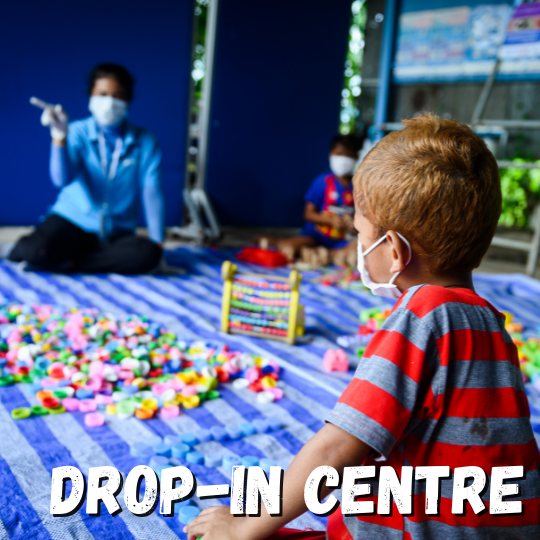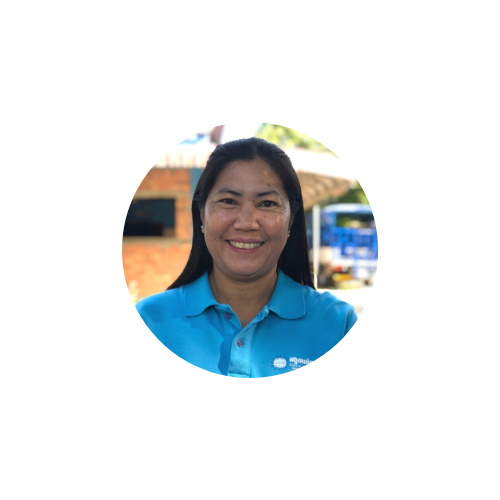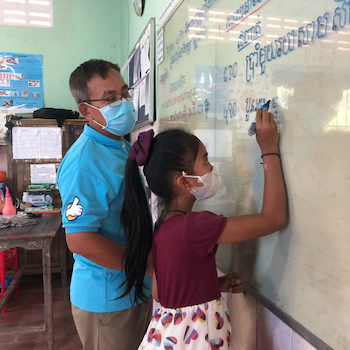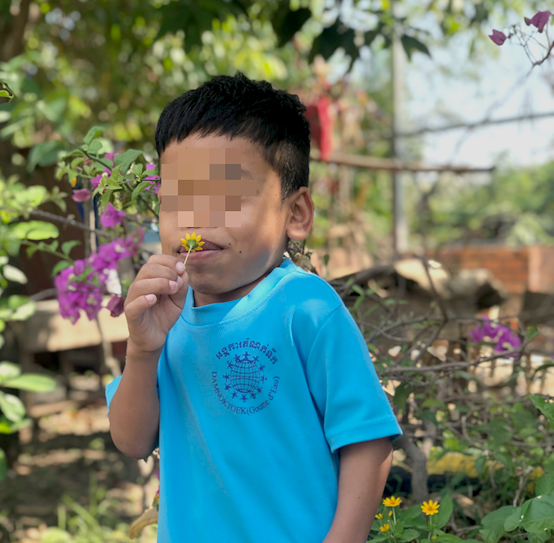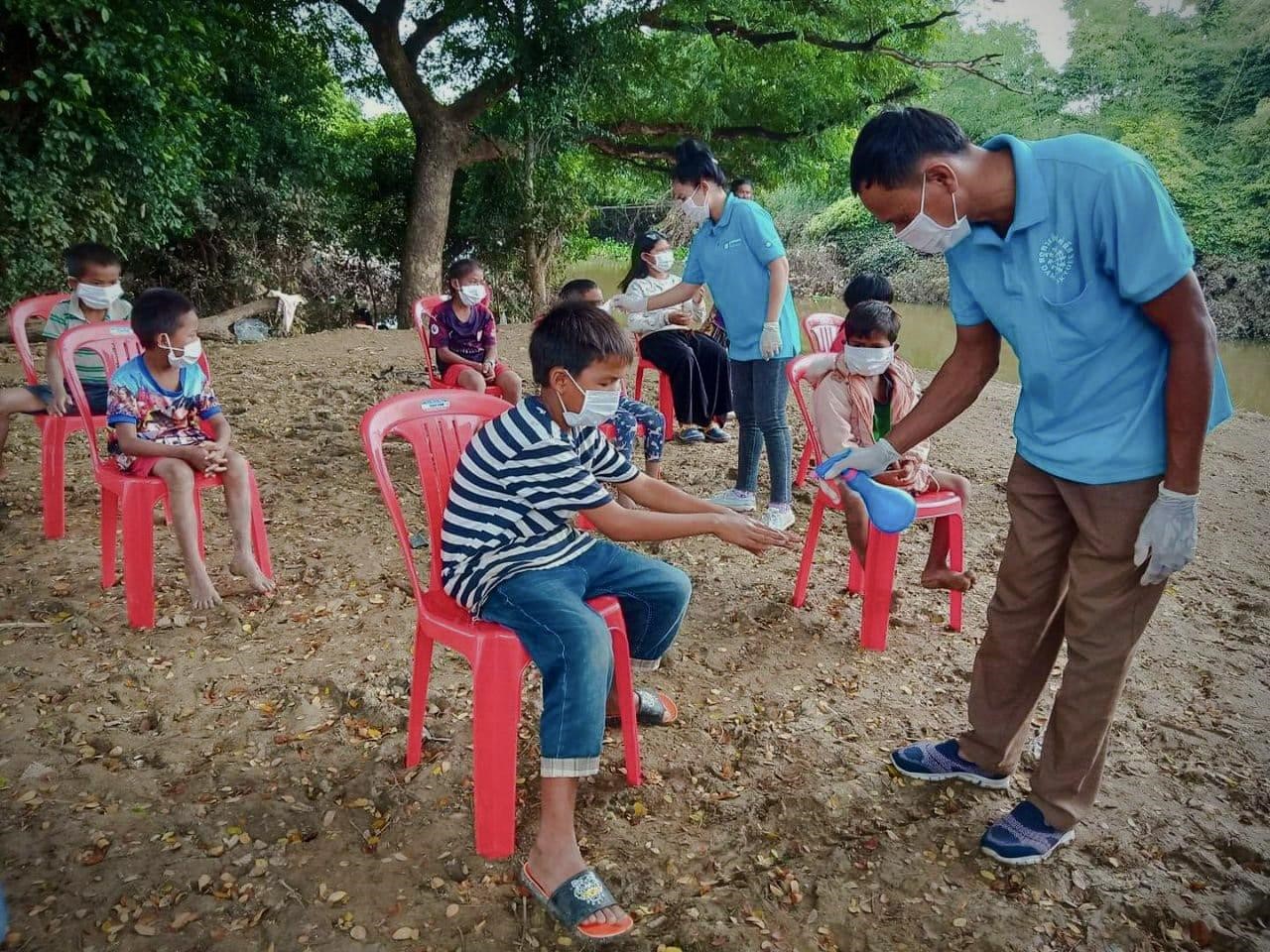The Stats
The Problem
Child migration is not a new phenomenon. As wage-earners move elsewhere in search of opportunities, they often move their families with them. However, unsafe migration is a specific condition where children are involved in migration that is exploitative or places them in situations where their rights are violated and their safety is put at risk. It is this form of migration that our programs seek to address.
Damnok Toek’s two largest sites of operation are in the cities of Neak Loeung and Poipet. Both are border cities: Neak Loeung, the main Mekong border crossing between Cambodia and Vietnam; Poipet, the main border crossing between Cambodia and Thailand.
Being large and strategic transit points, these cities are also centres of migration with workers and their families flocking to the city and across the borders in search of ways to ease their financial burdens. However, the economic opportunities in these areas are often unrealistically perceived as jobs for the uneducated and unskilled are scarce. In Poipet specifically, the proximity to the border facilitated the unregulated development of casinos, which, coupled with high levels of poverty, has contributed to the city becoming infamous for corruption and crime.
Consequently, because of poor and unstable living conditions, the children in Neak Loeung and Poipet are at risk of unsafe migration, being trafficked, becoming substance abusers, or being affected by violence.
Ways We Help
Prevention
Mobile Library
Provides bi-weekly awareness-raising sessions in Poipet on the importance of education, the risks and consequences of child trafficking and unsafe migration as well as gender-based violence in the communities.
Future's Office
Offers preventative services for at-risk parents such as job training, resume building, connections with other NGO apprenticeships, and Income Generating Activities (IGA).
.png)
Protection
Damnok Toek has a team of social workers conducting outreach four times per day, seven days per week. The social workers engage with street-living children, youth, and their families as well as visit vulnerable families from the community. They provide food and other provisions while informing members of the community about Damnok Toek’s various services they can access. For instance, they ensure street-living children are aware of the Drop-In Centre (DIC) where they can eat, shower, and sleep for free as well as talk to the team for longer-term support.
As a member of the ChildSafe Alliance, we provide training to community members, educators, vendors, etc., to protect children from abuse and prevent them from being placed in abusive situations.
Rehabilitation
Child Migrant Office (CMO)
The CMO is Damnok Toek’s office at the Poipet Transit Centre (PTC) where Cambodian citizens deported from Thailand are brought. Due to a lack of infrastructure, many of the children and youth brought to the PTC are likely to be re-trafficked without the course of intervention. Damnok Toek works to identify unaccompanied children and provide case management to then either refer them to support services, including our Reception Centre or assist them in returning to their families.
Alternative Care
Reception Centre (RC)
Provides short-term emergency and immediate care to unaccompanied minors who have been deported from Thailand. While social workers attempt to locate viable candidates for either family or kinship reintegration, the RC offers services to children including housing, food, education, legal aid, access to justice, psycho-social support, skills and sustainable livelihood training, family tracing, and medical care.
Transitional Care Facility (TCF)
Offers the same services as the Reception Centre on a long-term basis for children (up to 16 years old) whose families were unable to be identified or unable to be reintegrated into their families. Our Group Homes (GH) offer these services to youth from 16 years old provided they are enrolled in school or vocational training.


Reintegration
We believe that reintegration with family members should always be the first option for children who are victims of unsafe migration, provided it is safe to do so. Through the CMO in Poipet, our staff attempts to locate the families of children deported from Thailand and reunite them. However, in situations where reintegration is either impossible or is not the safest option, we have other programs to ensure children have access to opportunities to further their success.
Children who come into our care from the RC, TCF, or the DIC in Poipet or who have been identified by our ChildSafe Agents have the opportunity to be enrolled in our NFE program. Our social workers provide case management and conduct follow-ups with children and youth survivors of human trafficking and exploitation via our Outreach missions. We also provide vocational training through our Future’s Office in Poipet.



